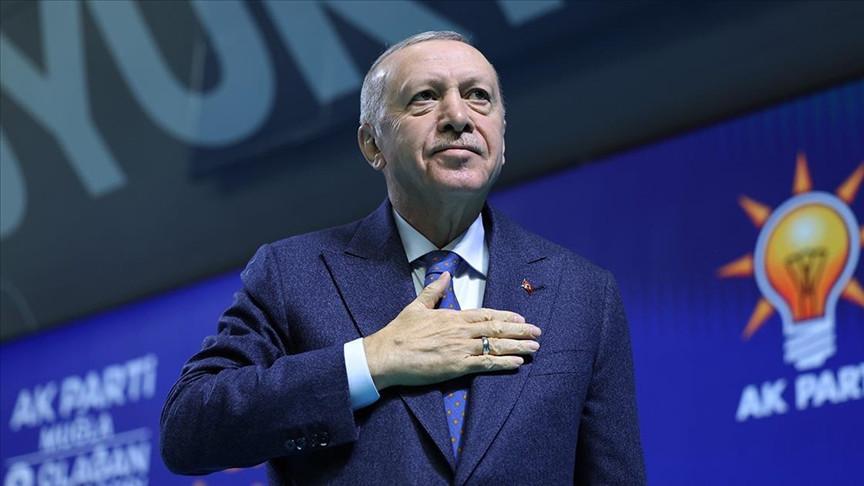President Erdoğan’s choices of energy civil servants for top court spark questions
Erdinç Çelikkan/Neşe Karanfil ANKARA

Zerrin Güngör (R), the head of Turkey’s Council of State, shakes hands with President Recep Tayyip Erdoğan after a meeting in Ankara. AA Photo
Turkish President Recep Tayyip Erdoğan has appointed nine new members with backgrounds in various fields, mainly from energy, to the Council of State, leading to concerns among environmentalists and chamber of professions that the court may no longer prioritize environmental aspects of energy projects.Three-quarters of vacant seats at the Council of State are elected by the Supreme Council of Judges and Prosecutors (HSYK) from among first-degree administrative judges and public prosecutors, or from among those who have been considered to be from the profession. The remaining quarter of the members are elected by the president from a certain list of professions. Some 44 seats were vacant, so Erdoğan is expected to appoint two more names in the near future.
The appointments of the nine new members by Erdoğan went into force after being published on Dec. 16 in the Official Gazette.
Accordingly, the new members of the Council of the State are Prime Ministry Security Affairs Director-General Ali Ürker; the director of the law department at the Energy Market Regulatory Authority (EPDK), Fatih Mehmet Alkış; Energy and Natural Resources Ministry Deputy Undersecretary İlker Sert; Director-General for Cooperatives at the Customs and Trade Ministry İsmail Kalender; Labor and Social Security Ministry Deputy Undersecretary Mahmut Ballı; the former head of the inspection board at the Energy and Natural Resources Ministry, Cevdet Malkoç; Director-General of Post and Telegraph Organization (PTT) Corp. Osman Tural; the first legal councilor of Kocaeli Metropolitan Municipality, Taha Erdinç Bülbül; and the first legal councilor of the Directorate-General for Migration Management, Zeynep Kenan.
Conflict of interest
However, experts suggest that Erdoğan’s choices could pave the way for mining, thermal power plant and hydroelectric power plant (HES) projects because the new members include a number of experts who wrote reports objecting to appeals demanding that certain projects be halted.
“We are now worried about cases concerning the environment that will go to the Council of State,” Baran Bozoğlu, the head of the Chamber of Environment Engineers, who is known for opening a number of cases against HES projects.
In 2004, the Cabinet issued a decree to authorize the EPDK to issue immediate expropriation decisions for investments in the electricity, natural gas and oil markets. However, in the last few years, the Council of State ruled that the decree was an unlawfully broad and general delegation of duty to the EPDK.
Accordingly, the current practice requires the Cabinet to issue decrees authorizing immediate expropriation for specific projects and purposes.
The increased clout of energy experts at the Council of State is expected to help block stays of execution in favor of environmental concerns.
“In the Yırca case and HES projects, for example, cases were opened against the licensing process and with regard to environmental impact assessment reports. The Energy Ministry is becoming an intervening party in these cases, and these appointments will lead to great concerns in the legal processes,” Bozoğlu said, underlining how licensing processes by the EPDK are “particularly troubling.”
In November, around 6,000 olive trees were controversially felled by a contractor to build a coal plant in the Aegean village of Yırca in just one night, before the project was aborted by the Council of State after heavy criticism. Locals had stood guard to prevent the cutting, but to no avail.
Hüseyin Yeşil, the head of the Chamber of Electrical Engineers, also drew attention to the fact that the new members had been elected from among those who asked at the time for a rejection of certain cases by the Council of State.
“The appointment of these people, who have been in the energy bureaucracy, will have an impact on these cases,” Yeşil said, citing cases opened by the Union of Chambers of Turkish Engineers and Architects (TMMOB).
“They will pave the way for all energy projects that they find appropriate. They are taking measures to ensure that the Council of State will not cancel projects. All of those new members in the past put their signatures on objections to appeals at the court,” he added.
















